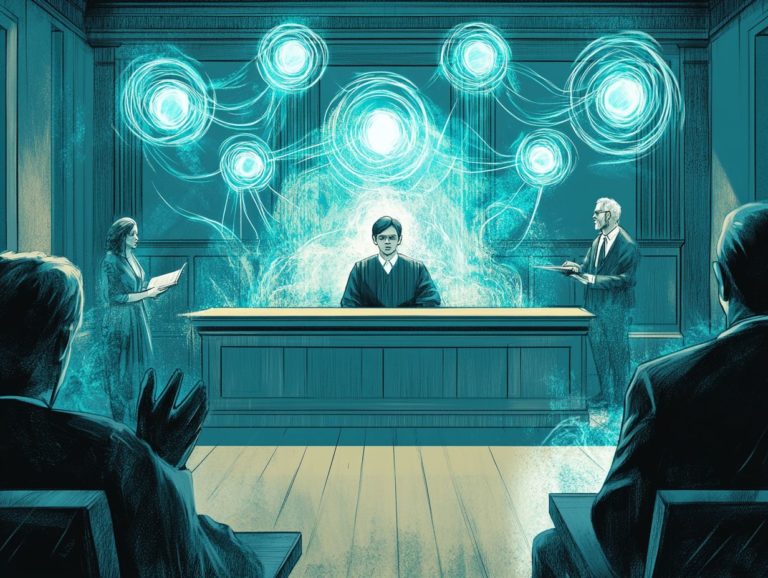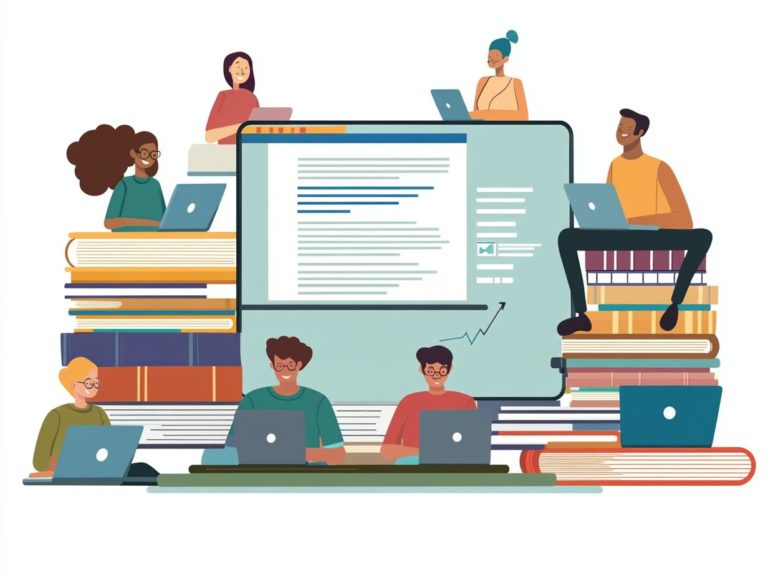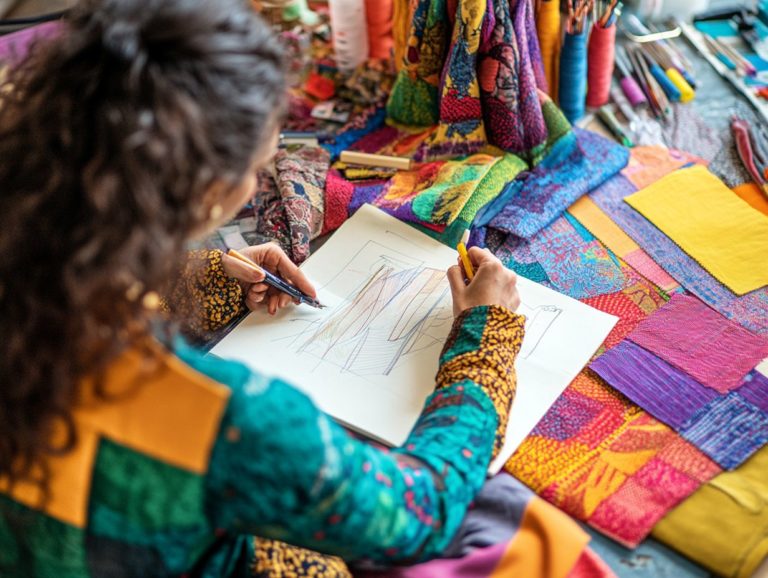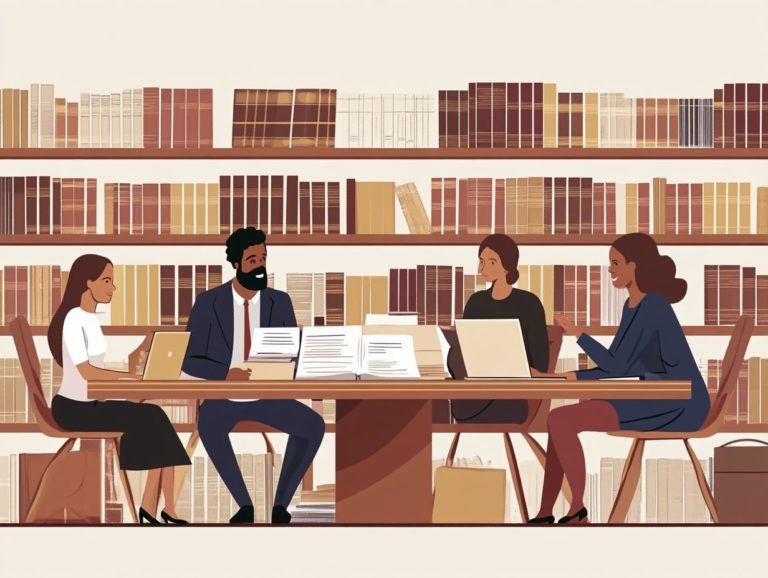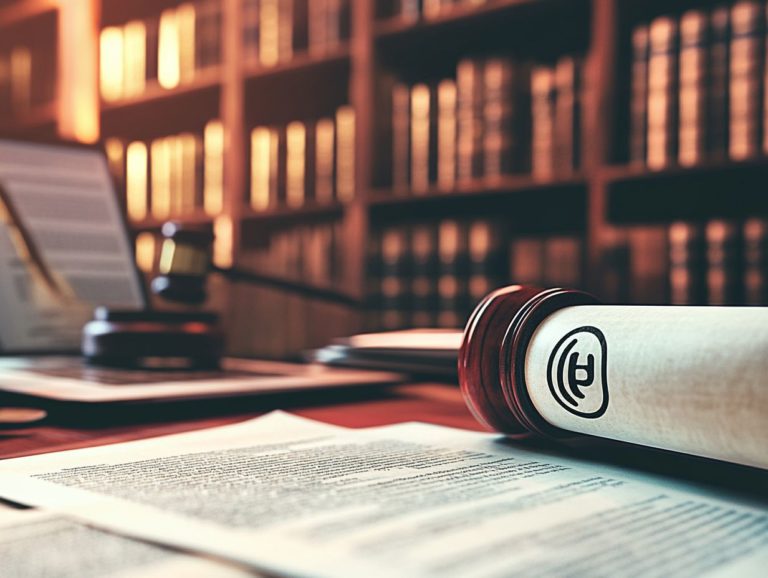How to Handle Copyright Infringement Claims
Copyright infringement can present significant challenges for creators, businesses, and individuals alike.
Grasping what constitutes infringement and recognizing its various forms is essential for anyone working in the creative field.
This guide will help you address accusations, from evaluating claims to crafting an appropriate response. It provides valuable tips on safeguarding yourself against potential disputes and outlines the legal repercussions you could encounter.
Keep reading to gain the essential knowledge you need to navigate the realm of copyright confidently!
Contents
- Key Takeaways:
- Understanding Copyright Infringement
- Steps to Take When Accused of Copyright Infringement
- How to Protect Yourself from Copyright Infringement Claims
- Legal Consequences of Copyright Infringement
- Resolving Copyright Infringement Disputes
- Frequently Asked Questions
- What is copyright infringement?
- How can I protect my original work from copyright infringement?
- What should I do if I suspect someone has infringed upon my copyright?
- What are the potential consequences of copyright infringement?
- Can I use copyrighted material under fair use?
- What steps can I take to avoid unintentional copyright infringement?
Key Takeaways:
- Understand copyright infringement to protect yourself.
- Take necessary steps when accused, like checking the claim’s validity.
- Implement best practices to avoid claims and legal issues.
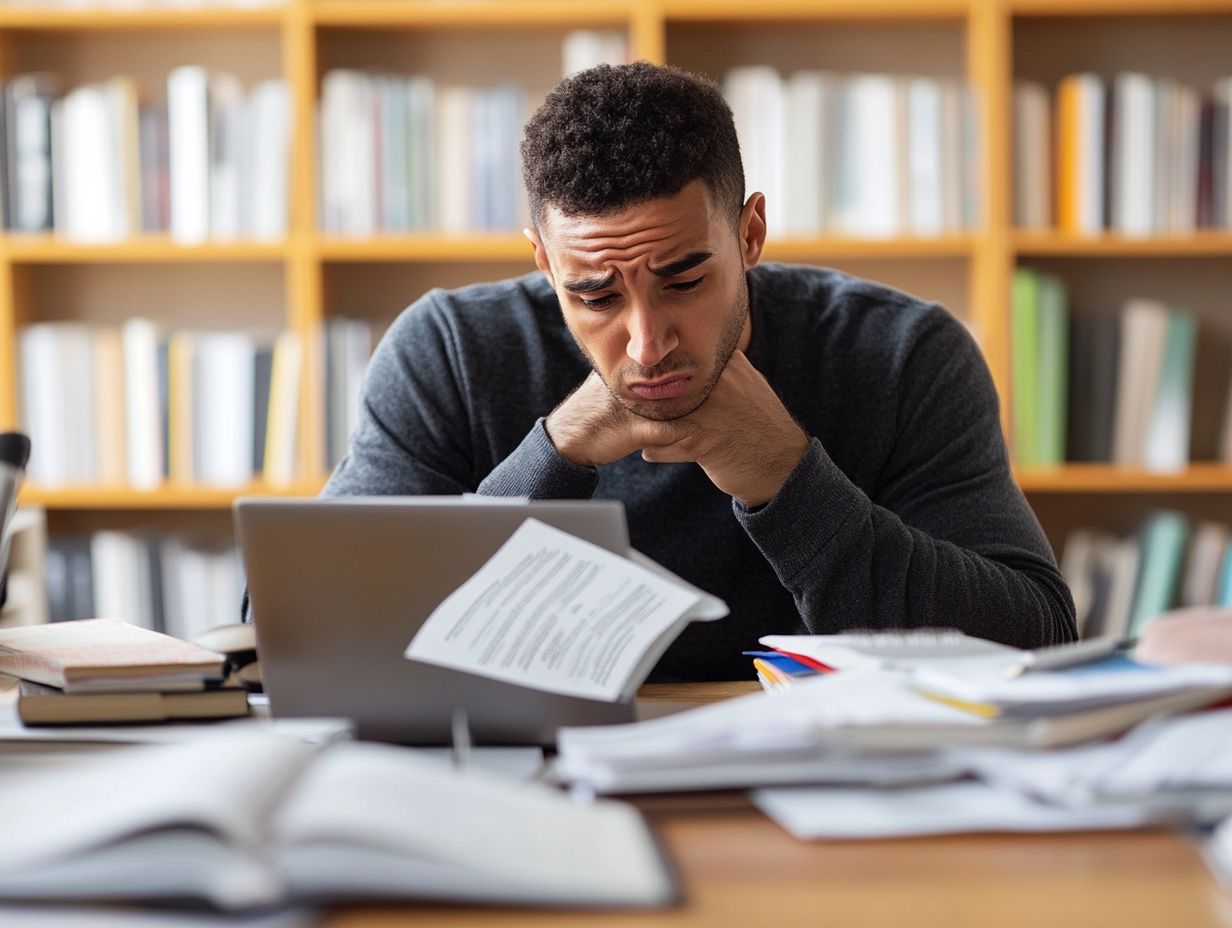
Understanding Copyright Infringement
Copyright infringement means using or sharing a creative work without permission. This could include copying, making adaptations, or sharing without consent.
This includes various forms of infringement, such as unauthorized copying of original works, creating new works based on an original, and distributing copyrighted materials without the copyright owner’s permission.
For creators, businesses, and individuals, understanding the implications of copyright infringement is crucial. By doing so, you can effectively safeguard your intellectual property and steer clear of potentially costly litigation.
Definition and Types of Copyright Infringement
Copyright infringement occurs when you use, reproduce, or distribute a copyrighted original work without the authorization of the copyright owner. Infringement can occur in several ways, including unauthorized reproduction, creating new works based on existing ones, or misappropriating works that may seem to be in the public domain.
You might encounter direct infringement, where a work is copied or distributed without permission. Then there s indirect infringement, where you could contribute to or enable someone else s infringement.
Understanding derivative works is important. Derivative works are new creations based on existing ones, and it s crucial to grasp these nuances as some works may drift into the public domain, allowing for broader use without copyright protections.
In this ever-evolving landscape of copyright law, it s vital to respect original creations while skillfully navigating the fine line between creativity and infringement.
Steps to Take When Accused of Copyright Infringement
When you encounter a copyright infringement claim, you must act swiftly and thoughtfully to safeguard your rights and minimize any legal repercussions, especially by understanding copyright infringement cases.
A solid grasp of the litigation process and the legal remedies at your disposal can greatly affect the trajectory of your case. Start by evaluating the validity of the claim; this assessment will guide your next steps, whether that means entering negotiations with the claimant or preparing for potential court proceedings.
Assessing the Validity of the Claim
To assess the validity of a copyright infringement claim, consider whether the work in question is genuinely protected by copyright and whether your use aligns with the rights of the copyright owner or falls under permissible exceptions in copyright law.
One fundamental step in this evaluation is examining whether the work has been registered with the United States Copyright Office. Registration acts as a crucial safeguard for creators, offering significant legal advantages when disputes arise.
Without registration, proving ownership can be much harder, making it considerably more daunting to pursue a copyright infringement claim. Registered works are entitled to statutory damages an invaluable asset in the legal arena.
By understanding these elements, copyright holders can effectively navigate their rights and substantiate their claims in potential court actions.
Responding to the Accusation
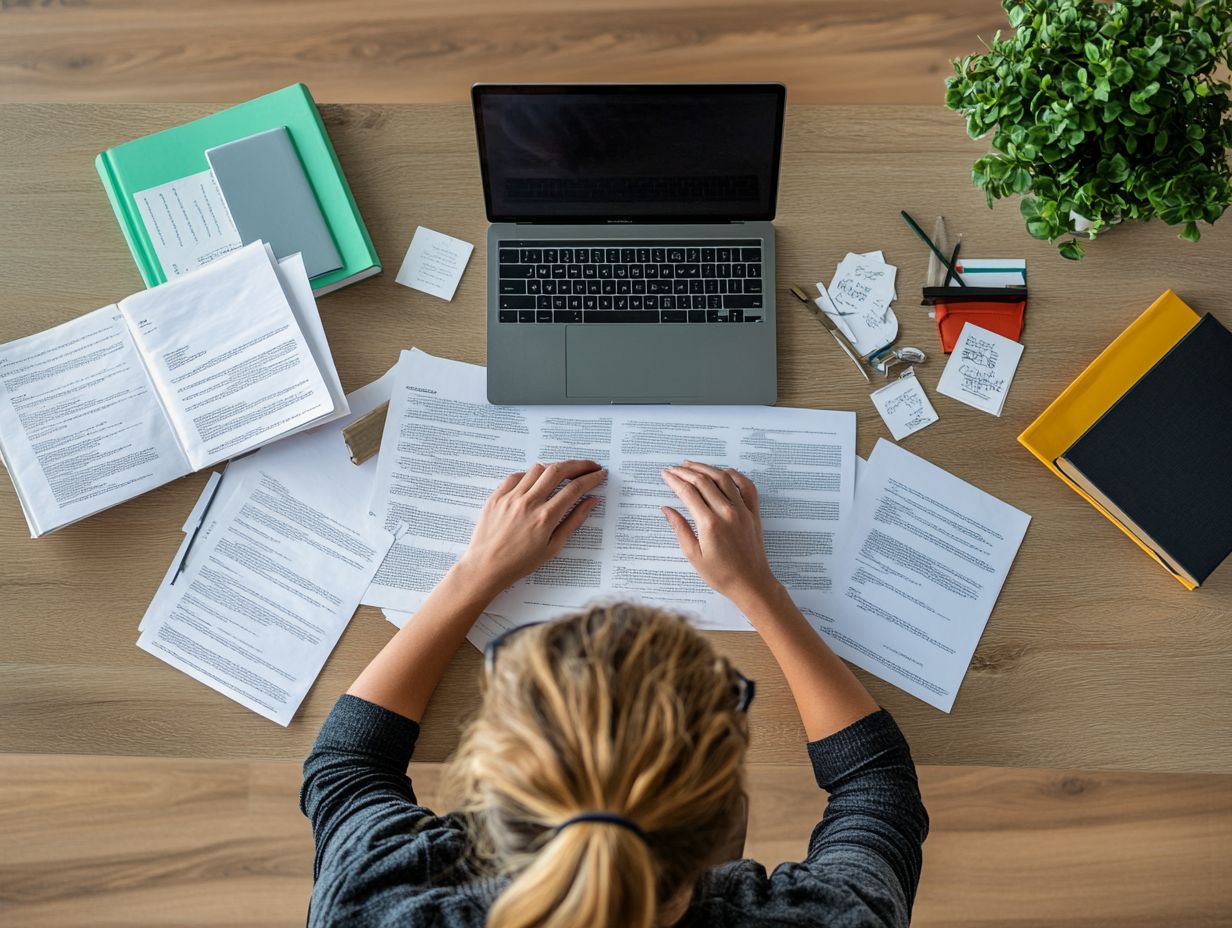
Responding to an accusation of copyright infringement requires a strategic approach. Seek legal counsel and evaluate the merits of the claim to craft an effective defense.
Navigate this complex situation by opening a dialogue with the accuser. This could lead to negotiation options that resolve the issue without escalating to court. Weigh the benefits of a settlement to save time and money, making it a savvy alternative.
If the situation escalates, prepare for legal action. Gather documentation and evidence that strengthens your case. Understand the potential monetary damages that could arise during the process.
Taking a proactive stance in your response can significantly influence the outcome.
How to Protect Yourself from Copyright Infringement Claims
Act now to protect your creative work! Implement strong copyright measures to defend against infringement claims.
Familiarize yourself with copyright law and adopt best practices. Ensure proper registration and utilize work-for-hire agreements to minimize legal risks.
Best Practices for Avoiding Accusations
To steer clear of copyright infringement accusations, prioritize copyright protection and compliance with copyright law. Focus on creating and distributing original works.
Meticulously cite your sources to give proper credit to the original creators. This respects intellectual property rights and enhances your credibility.
Acquire necessary licenses for using third-party materials. This safeguards you from legal disputes and fosters positive relationships within the creative community.
Understanding copyright law, including fair use, is crucial. This knowledge helps you navigate your rights and responsibilities effectively.
It s important to know the legal remedies available for unauthorized use. These can act as a powerful deterrent against infringement and protect your interests in a digital landscape.
Legal Consequences of Copyright Infringement
The legal ramifications of copyright infringement can be serious. You may face financial penalties, injunctions, and the possibility of litigation in civil court.
The copyright owner is likely to pursue monetary damages for unauthorized use, emphasizing the need to respect copyright laws.
Possible Penalties and Legal Action
Possible penalties for copyright infringement can lead to civil and criminal consequences, depending on the severity of the infringement and intent.
Penalties might include statutory damages fixed amounts specified by law and actual damages, which reflect the tangible losses suffered by the copyright holder.
In serious situations, the infringer could face criminal charges, leading to fines or even imprisonment.
Copyright owners have the right to take legal action, sending cease-and-desist letters or pursuing lawsuits to defend their rights and seek compensation.
Recognizing the weight of these penalties underscores the necessity of adhering to copyright laws. This nurtures creativity and protects vital intellectual property.
Resolving Copyright Infringement Disputes
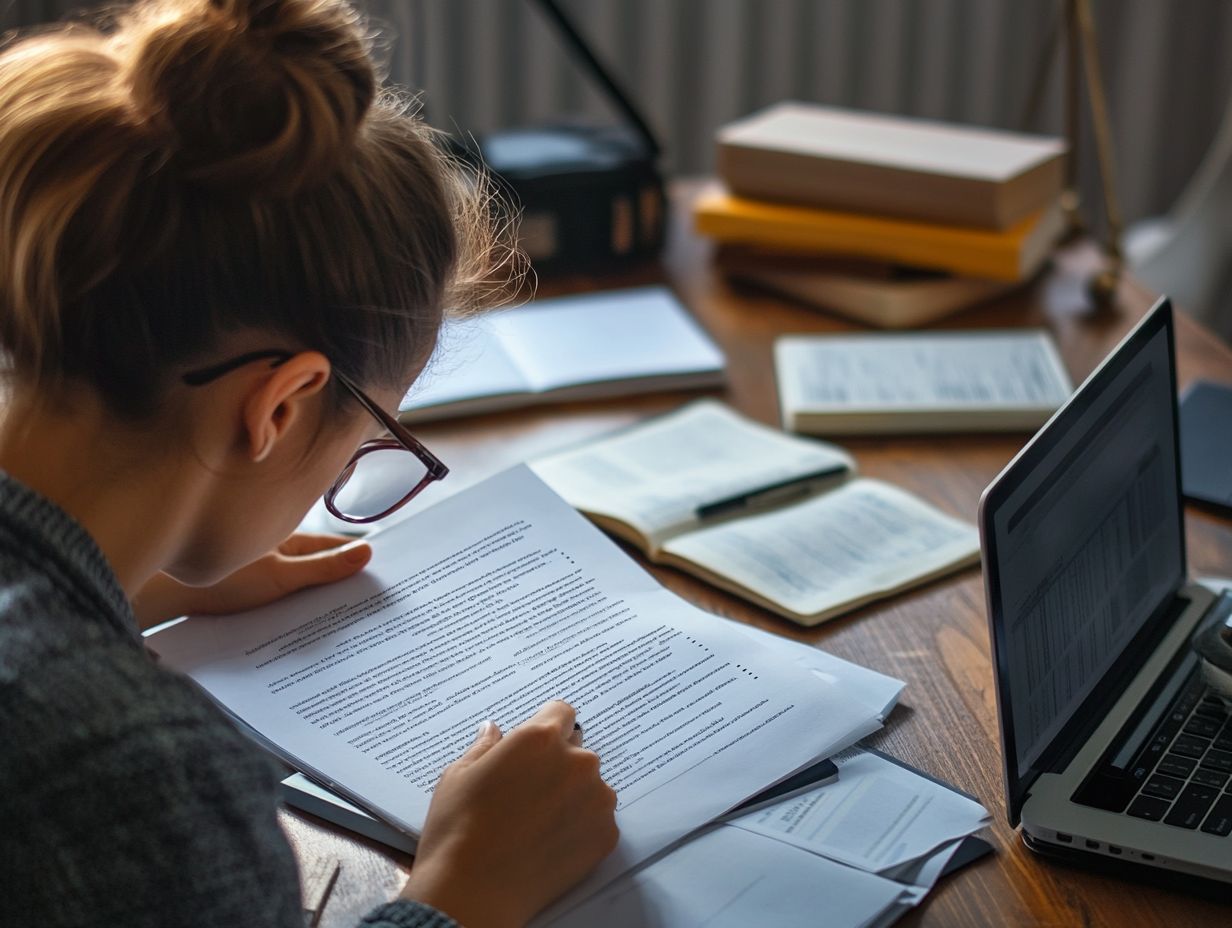
Navigating copyright infringement disputes demands a strategic approach and a keen understanding of the legal remedies available.
Aim for a quick resolution. This helps you dodge the expensive and long processes of court battles.
Stay informed and protect your rights!
Negotiating and Settling Claims
Navigating copyright claims can save time and resources! Settling copyright claims can lead to outcomes that benefit everyone and avoid the complexities of litigation.
Effective communication is key during this process. Both sides need to be clear about their positions and objectives. It’s essential to prioritize terms that go beyond just financial compensation, considering broader implications like future use rights and potential royalties.
If disputes arise, you have several legal remedies at your disposal, including alternative dispute resolution methods like mediation, which help settle disputes outside of court.
Staying flexible yet firm in negotiations contributes to a more amicable agreement that respects everyone’s interests.
Going to Court: What to Expect
If you face a copyright infringement claim that escalates to court, understanding the litigation process can be invaluable in preparing your case.
Pay close attention to each legal step, starting with crafting a response to the initial complaint, which lays the foundation for your entire case.
Once that’s in place, you may encounter pre-trial motions, which provide opportunities to challenge certain evidence or seek a case dismissal before trial.
When the trial phase arrives, it’s essential to mount a robust defense, supported by comprehensive documentation that reinforces your argument. At this point, having legal representation is crucial.
An attorney can navigate procedural intricacies and advocate for your rights, ensuring that all relevant materials are organized and presented compellingly.
Frequently Asked Questions
What is copyright infringement?
Copyright infringement is the unauthorized use or reproduction of someone else’s original work without their permission. This could include using images, text, music, or videos without proper attribution or licensing.
How can I protect my original work from copyright infringement?
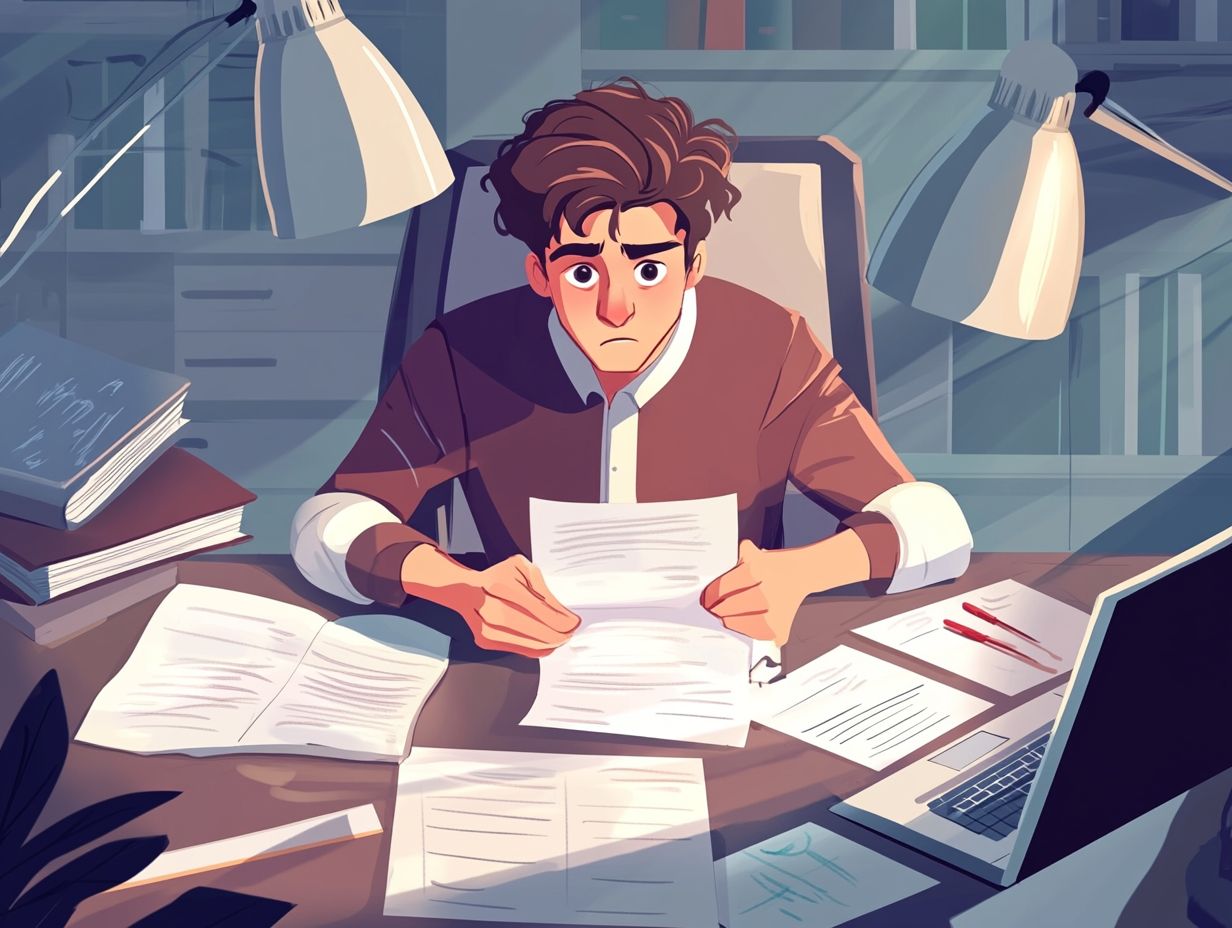
The best way to protect your work is to register it with the appropriate copyright office. This provides legal evidence of ownership and simplifies taking action against infringers.
What should I do if I suspect someone has infringed upon my copyright?
If you suspect copyright infringement, gather evidence such as proof of ownership and the infringement itself. Then, reach out to the infringer and request that they cease and desist the unauthorized use. If they do not comply, you may need to take legal action.
What are the potential consequences of copyright infringement?
Consequences can include legal action, fines, and damages awarded to the copyright owner. It may also harm your reputation and credibility as a creator.
Can I use copyrighted material under fair use?
Fair use allows limited use of copyrighted material without permission for purposes such as commentary, criticism, or education. However, it’s a complex concept that can vary by circumstances. Consulting a legal professional is advisable before using copyrighted material under fair use.
What steps can I take to avoid unintentional copyright infringement?
To avoid unintentional infringement, conduct thorough research and obtain proper licenses or permissions before using others’ material. Always give proper credit to the original creator and refrain from using copyrighted material without permission.


